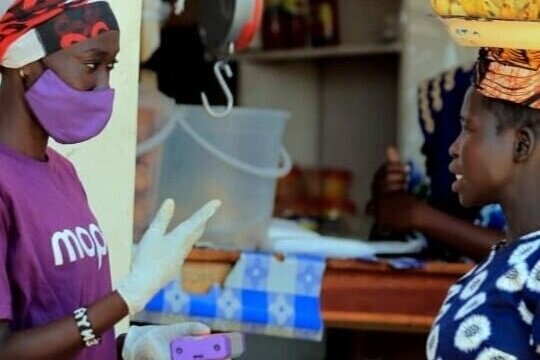
UHD in Action:
Bringing Renewable Energy To The Last Mile
Facilitating access to green energy and empowering women in vulnerable communities
KEY RESULTS
Installation and freight cost reduction
Multiple solar hubs launched
Reduced emissions
Rural health improvements
Direct employment opportunities created
Financial inclusion opportunity for women
Challenge
In the West Nile project area there is no access to sustainable power outside of the three main towns. Refugee camps have limited access to expensive diesel power. The only access to energy for refugees in poor rural communities is dangerous, polluting kerosene for lamps.
Through a Community Solar Hub (CSH) model, solar power was made available to 100 poor, off-grid communities in the West Nile region of Uganda. Electricity is generated at the CSH and distributed to local households and small businesses through a smart battery PAYG system using mobile money. The CSH can charge 300 batteries daily, with sufficient capacity to power basic appliances and low voltage machinery.
The renewable energy client was looking for a partner to help manage the high international freight forwarding costs associated with transportation of batteries. In addition, with little knowledge of Africa, the client needed support managing day-to-day sales operations, including reporting, consumer feedback, effective debt collection and prompt remittance.
Solution
The project goal was to create a commercially sustainable business model using community buildings and health clinics to act as a "secure hub" for charging and distributing the batteries and innovative portable battery solution that can be rented by refugees in Rhino refugee camp and surrounding areas. It also intended to empower women by enabling them to establish a credit record and start a micro-business with surplus battery capacity.
UHD developed a project management plan with a practical roadmap to getting the job done that is relevant to the country, product profile, customer, and end consumer. We employed cost management strategies through incorporation of good distribution practices and also put in place a customer-centric sales and marketing strategy. UHD also engaged strategically with telecom companies and banks to aid the swift and timely remittance of monies collected.
Results
UHD developed and launched 4 solar hubs in refugee settlements and marginalized communities in the West Nile as planned, and reduced freight costs.
Over 5,000 individuals and households have benefitted to date (>20,000 beneficiaries) and 54 direct employment opportunities have been created, empowering women through financial inclusion. Emissions were also reduced through the use of green energy.
The availability of the batteries has also made it possible to power health centers, helping improve health care in these marginalized communities.
